Why did you choose LSE and the programme?
The Department of Philosophy, Logic and the Scientific Method impressed me for the following reasons. One was the composition of world-class academics, who coordinate and teach the Philosophy of Science programme. Alumni of whom include Karl Popper and Imre Lakatos. Another was the extensive range of courses that I could choose from to personalise my MSc.
Most fascinating to me, however, was historical and contemporary research output covering the history, interdisciplinary relationships, principles and methods of scientific enterprise. Reading which I discerned have enabled humankind to debate and distinguish valid, meaningful and useful discourse from its contrary. It was an aspiration of mine to partake in such discourse, for which the source environment at LSE seemed best suited.
Which aspect of your studies were the most beneficial for your professional as well as personal development?
The Philosophy of Science encompasses and appraises the methods of analysis, reasoning and communication of ideas from the humanities, and the evidence-based, empirically testable methods of formal, natural, social, applied and computer science. Therefore, the analytical tools that the MSc Philosophy of Science provided are applicable to all these above mentioned subjects, which are relevant to my career as a medical doctor and aspiring educator.
More specifically my MSc has enabled me to utilise logical reasoning, as well as structure arguments, explanations and predictions. I have explored numerous concepts within the scientific method such as causation, representation, statistical interpretation and confirmation. Statistical interpretation has a significant influence on the empirical and applied sciences and similarly, value, among other ethical considerations, is directly applicable to the field of research.
These concepts have guided and optimised my abilities to evaluate and author academic literature, particularly in the context of my current DPhil (PhD Oxon.) research.
What is your fondest memory of your time here?
My fondest memories at the department are always from seminar discussions, where my classmates from an array of industrial and academic backgrounds would offer their insight on a subject relating to their discipline. This would precede the subsequent discussion around the various applications of proposed philosophical principles, and perspectives to interpretating evidence. These sessions would always be intellectually engaging, whilst building and strengthening the sense of community and camaraderie, and if I may now offer a subjective judgement, feel almost magical against the backdrop of a snowy evening in Central London, high in the LSE Centre Building.
Why would you recommend studying at LSE and the Philosophy department in particular?
I would recommend both at LSE and the department, primarily for the overall management of the course and my positive experience with the lecturers, tutors and administrative staff. I felt supported in my academic, personal and professional development, and was able to tailor my course and modules to my interests, abilities and future aspirations.
The course content is relevant and widely applicable to to modern scientific enterprise, and is taught in an engaging manner, which supports independent learning. I completed the course part-time to facilitate my medical training, and my supervisor was always helpful, appropriately available and insightful on a range of pastoral and academic topics. The assessment methods also suited my preference to essays, both in exam conditions and outside, as this method facilitates deep subject exploration. LSE also provides an exemplary range of resources and study material as part of their library, and there are numerous study locations to access.
Your LSE experience in your own words
My LSE experience scored highly in the whole range of university expectations: stimulating, engaging, enjoyable, customised, supportive, applicable and purposeful scholarship, to a standard of excellence.
Abdul Karim Ismail is currently a Foundation Level Doctor at the University Hospitals of Leicester and doing a PhD at the University of Oxford (Last update: January 2023).


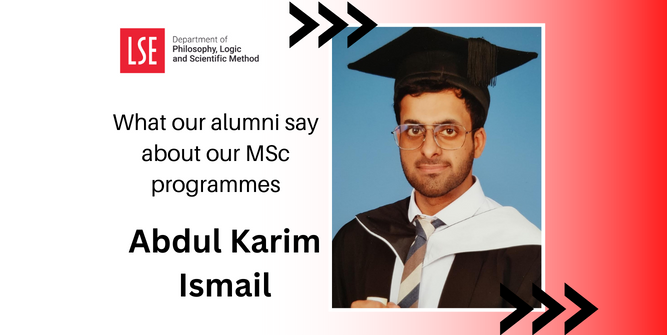
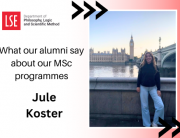
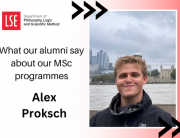
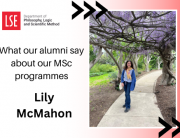
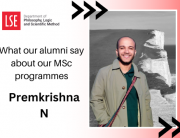
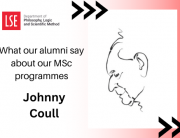
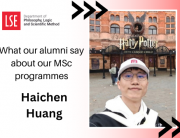
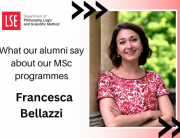
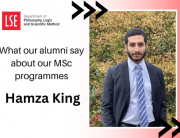
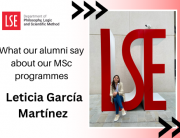
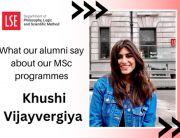
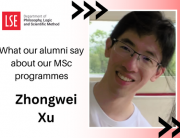
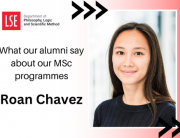
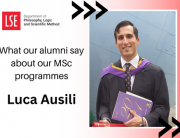
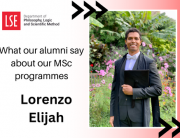
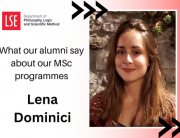

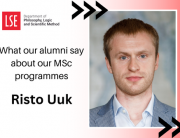
Connect with us
Facebook
Twitter
Youtube
Flickr